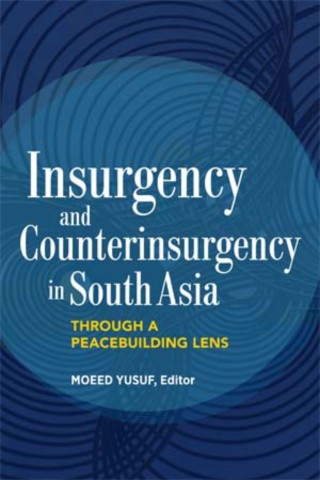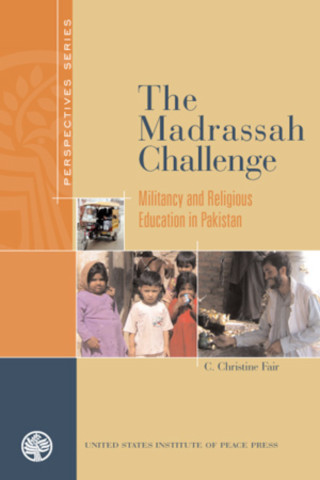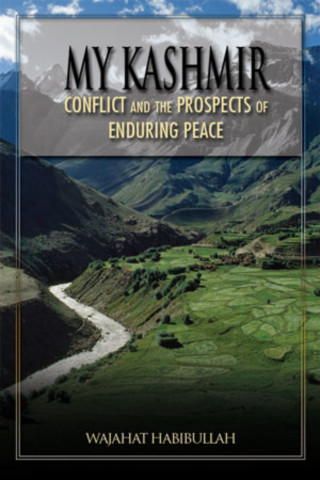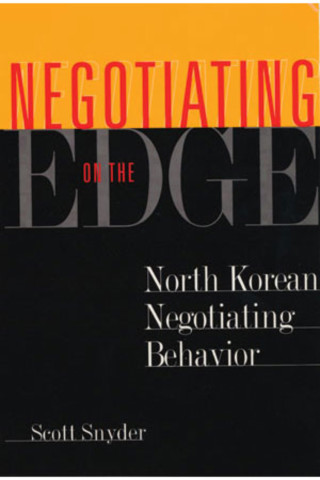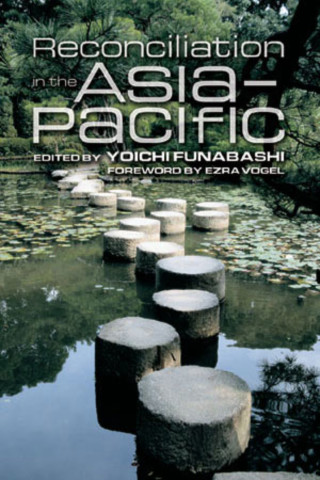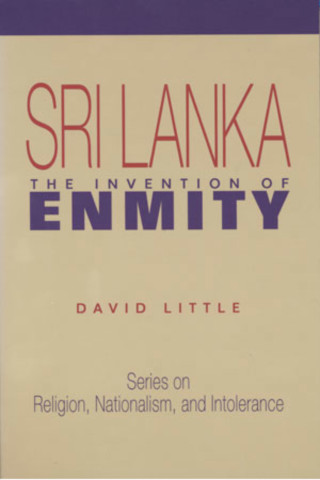Catalog
- Sort by
In Insurgency and Counterinsurgency in South Asia, ten experts native to South Asia consider the nature of intrastate insurgent movements from a peacebuilding perspective. Case studies on India, Pakistan, Nepal, and Sri Lanka lend new insights into the dynamics of each conflict and how they might be prevented or resolved.
Fair explores the true significance of the madrassah and its role in Pakistan’s educational system. She chronicles the Pakistan government’s efforts to reform the madrassah system and offers important policy implications and suggestions for initiatives that might address some of the main concerns emanating from ostensible ties between education and security inside and outside Pakistan.
The picturesque Indian state of Jammu and Kashmir, for centuries a model of harmony and coexistence, has been ravaged by conflict for sixty years, caught in a tug-of-war between historical rivals India and Pakistan. Now that both nations are nuclear powers, some see the Kashmir issue as a flash point for what could become a nuclear war.
In My Kashmir, Wajahat Habibullah lays out the intricate web of issues at the root of the conflict: ethnicity, religion, national identity, friction between national and local government, and territory. In an account that is equal parts history and memoir, he examines the complicating factors: the Indian government’s missteps, the greed of the entrenched Kashmiri middle-class elites, and religious politics and their all-too-familiar polarizing consequences. Unlike many others who have written on the subject, Habibullah gives even-handed treatment to both Indian and Pakistani perspectives, though he rightly keeps the Kashmiri people themselves at center stage, for their needs and desires will be pivotal to any real solution. Now, he says, despite the history of bloodshed and betrayals, the possibility for lasting peace is greater than ever before.
Wajahat Habibullah has spent much of his long and distinguished career in the Indian Administrative Service working in Kashmir. His insightful account carries the authority of someone who has been in the thick of the actions and political maneuverings, dealing directly with the players amid the most wrenching turmoil. Being both Indian and Muslim, insider and outsider, has enabled him to feel and understand the competing loyalties and emotions that are inextricably part of Kashmir.
The ordeal of negotiating with North Koreans during the Cold War has left the impression of a “crazy” and “bizarre” diplomacy, of negotiators who insult and provoke their Western counterparts while fabricating crises and fomenting discord. As Negotiating on the Edge reveals, however, there is not only a method to this “madness” but also an ongoing shift toward a less provocative negotiating style.
Drawing on interviews with an eminent cast of U.S. officials and marshalling extensive research on North Korea past and present, Scott Snyder traces the historical and cultural roots of North Korea's negotiating behavior and exposes the full range of tactics in its diplomatic arsenal. He explains why North Koreans behave as they do, and he argues that there is, in fact, an internal logic to what often seems to be outrageous conduct.
Finally, Snyder explores how economic desperation and the end of the Cold War have forced North Korea to modify its negotiating style and objectives. Focusing on the U.S. negotiating experience with North Korea in the 1990s, Snyder also deals comparatively with recent South Korean and multilateral attempts to engage Pyongyang.
History has left many scars in the Asia-Pacific. Injuries inflicted generations ago are still fresh in the collective memories of the peoples of the region, hobbling efforts to repair relationships between old adversaries. But recently the spirit of reconciliation seems to have acquired new life. From Korea to Japan to China, longtime enemies are trading apologies and looking ahead.
In this remarkably timely volume, Yoichi Funabashi, one of Japan's most influential journalists, and seven authors from throughout the Asia-Pacific shine the spotlight on the prospects for reconciliation in the region. Looking at instances of inter-ethnic as well as international strife, this book lays out the background to each case, analyzes the impact of unresolved and sometimes unacknowledged grievances, and weighs the prospects for overcoming the burden of history.
Not all the cases inspire optimism, at least in the short term, for bitter memories have burrowed deep into society and are intertwined with issues of political power and ethnic identity. But in some parts of the region, palpable progress toward reconciliation is being made. In his conclusion, Funabashi identifies the key steps that governments and publics must take if they are to come to terms with the past.
For over two millennia, the Buddhists and Hindus of Sri Lanka (formerly Ceylon) lived together in relative peace. But in the twentieth century, this small island republic off the coast of India has been wracked by recurrent violence and ethnic tension.
Especially since independence in 1948, the majority Sinhalese population, predominantly Buddhist, and the Tamil minority, mainly Hindu and some Muslims, have competed fiercely over questions of rate, language, religion, and political control. Several revisions of the constitution have failed to resolve these issues, and the post-independence period has witnessed horrific riots, guerrilla movements on both sides, and pro-government death squads, as well as a “peace-keeping effort” by Indian forces to try to protect the Tamil minority and to resolve the dispute.
What role does religion in fact play in the conflict, and what can be done to reduce the level of tension and violence in Sri Lanka? This volume addresses those questions by examining the sources of this intense conflict; the political, legal, and nongovernmental efforts at reconciliation; and the prospects for a settlement.

